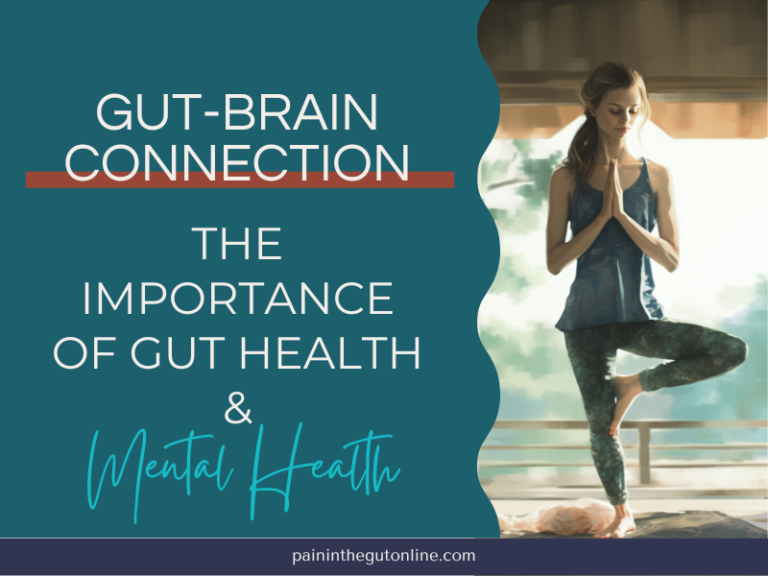GUT HEALTH DIET
8 min. read
Reclaim your gut with the ultimate gut health diet! Boost digestion and say goodbye to chronic issues.

Table of Contents
Understanding Gut Health
To improve your gut health, it’s necessary to understand the significance of maintaining a healthy gut. Your gut, which includes your stomach, small intestine, and large intestine, plays a crucial role in digestion, nutrient absorption, and overall well-being.
The state of your gut health can have a profound impact on your overall health and quality of life.
The Importance of Gut Health
A healthy gut is essential for proper digestion and nutrient absorption.
It helps break down food, extract nutrients, and eliminate waste products efficiently. Your gut is home to trillions of beneficial bacteria known as gut microbiota. These bacteria play a vital role in digestion, immune function, and even mental health.
A well-balanced gut microbiota houses a diverse and abundant community of beneficial bacteria.
When the balance of these bacteria is disrupted, it can lead to various digestive issues and health problems. Maintaining a healthy gut is crucial for optimal digestion, nutrient absorption, and overall well-being.
Common Symptoms of Poor Gut Health
If you’re experiencing chronic digestive issues, it could be an indication of poor gut health.
Some common symptoms of poor gut health include:
- Bloating and gas: Excessive bloating and gas after meals can be a sign of imbalances in your gut bacteria or difficulties digesting certain foods.
- Constipation or diarrhea: Irregular bowel movements, either constipation or diarrhea, can be a sign of poor gut health. This may be due to a disrupted gut microbiota or other digestive issues.
- Food intolerances: Frequent food intolerances, such as lactose intolerance or gluten sensitivity, may suggest an underlying gut issue.
- Fatigue and low energy: A poorly functioning gut can impact nutrient absorption, leading to fatigue and low energy levels.
- Mood disorders: The gut-brain connection is strong, and imbalances in the gut may contribute to mood disorders such as anxiety and depression.
If you’re experiencing any of these symptoms, it’s important to consult with a healthcare professional to determine the underlying cause and develop an appropriate plan to improve your gut health.
For more information on foods that can help improve gut health, check out our article on foods to improve gut health.
The Gut Health Diet
Adopting a gut health diet can make a significant difference in improving your gut health.
This diet focuses on incorporating anti-inflammatory foods that promote a healthy gut microbiome while avoiding or limiting those that can disrupt it. By following this diet, you can nourish your gut and support optimal digestive function.
Introduction to the Gut Health Diet
The gut health diet emphasizes the consumption of nutrient-dense, whole foods known to benefit the gut.
It aims to provide the necessary nutrients for gut cell repair, support the growth of beneficial gut bacteria, and reduce inflammation. At the same time, it discourages the intake of foods that can harm the gut and promote the growth of harmful bacteria.
Foods to Include in Your Diet
When following the gut health diet, you want to include a variety of foods that support a healthy gut microbiome.
Here are some key food groups to focus on:
- High-fiber Foods: Fiber is essential for gut health as it acts as a prebiotic that feeds the beneficial bacteria in your gut. Incorporate whole grains, legumes, fruits, and vegetables rich in soluble and insoluble fiber into your diet.
- Fermented Foods: Fermented foods are rich in probiotics, the beneficial bacteria that help restore and maintain gut health. Yogurt, kefir, sauerkraut, kimchi, and kombucha are excellent sources of probiotics.
- Healthy Fats: Consuming healthy fats such as avocados, nuts, seeds, and olive oil can help reduce inflammation and support a healthy gut lining.
- Lean Proteins: Opt for lean proteins like poultry, fish, tofu, and legumes, which are easier to digest and less likely to cause gut irritation.
- Colorful Fruits and Vegetables: Including colorful fruits and vegetables in your diet provides essential vitamins, minerals, and antioxidants that promote gut health.
Foods to Avoid or Limit
To support a healthy gut, it is important to be mindful of certain foods that can negatively impact gut health.
While individual sensitivities may vary, here are some foods to avoid or limit when following the gut health diet:
- Processed Foods: Processed foods often contain additives, preservatives, and unhealthy fats that can disrupt the gut microbiome. Opt for whole, unprocessed foods whenever possible.
- Added Sugars: High intake of added sugars can promote the growth of harmful bacteria in the gut. Minimize the consumption of sugary snacks, sodas, and sweetened beverages.
- Artificial Sweeteners: Artificial sweeteners, often found in sugar-free products, can alter the balance of gut bacteria. Limit the use of artificial sweeteners like aspartame, sucralose, and saccharin.
- Trans Fats: Trans fats found in fried and processed foods can lead to inflammation in the body, including the gut. Avoid foods containing partially hydrogenated oils. Check out these anti-inflammatory foods instead.
- High-Fat Foods: While healthy fats are beneficial for gut health, excessive consumption of high-fat foods can be hard to digest and may cause gut discomfort. Moderation is key.
By incorporating gut-friendly foods and avoiding or limiting those that can harm the gut, you can take important steps towards improving your gut health. Remember that everyone’s digestive system is unique, so it may be helpful to consult with a healthcare professional or registered dietitian for personalized guidance. For more information on foods that improve gut health, check out our article on foods to improve gut health.
Sample 3-Day Gut Healthy Menu
| Breakfast | Greek Yogurt Parfait – 1/2 cup yogurt, fresh or frozen mixed berries, and a sprinkle of granola and chia seeds |
| Lunch | Quinoa Salad – cooked quinoa, chopped cucumbers, bell peppers, and avocado, with lemon vinaigrette |
| Dinner | Baked Salmon – oven cooked salmon seasoned with old bay, served with roasted sweet potatoes and broccoli |
| Snack | Almond Butter Apple Slices – sliced apple dipped in warm almond butter |
| Breakfast | Spinach and Mushroom Omelette – 2 eggs, beaten, with spinach, mushrooms, and feta cheese, and olive oil |
| Lunch | Turkey and Veggie Wrap – roll sliced turkey, mixed greens, avocado, and hummus in a whole grain tortilla |
| Dinner | Grilled Chicken with Quinoa & Roasted Veggies – grill chicken breast, serve with quinoa and a medley of roasted vegetables |
| Snack | Carrot Sticks with Hummus – dip carrot sticks in hummus for a crunchy, satisfying snack |
| Breakfast | Smoothie Bowl – blend spinach, banana, frozen berries, and almond milk. Top with sliced almonds and shredded coconut |
| Lunch | Chickpea Salad – toss chickpeas with cherry tomatoes, cucumbers, feta cheese, olives, and a drizzle of olive oil and lemon juice |
| Dinner | Vegetarian Chili – cook up a hearty chili with beans, tomatoes, bell peppers, onions, and spices |
| Snack | Greek Yogurt with Berries – Enjoy a bowl of Greek yogurt topped with mixed berries |
Supporting Gut Health
While following a gut health diet is essential for improving your gut health, there are additional lifestyle factors that play a crucial role in supporting a healthy gut. These factors include hydration, stress management, and regular exercise.
Hydration and Gut Health
Staying hydrated is vital for maintaining a healthy gut. Water helps to soften stools, making them easier to pass and reducing the risk of constipation. It also aids in the digestion and absorption of nutrients. Aim to drink at least 8 cups (64 ounces) of water per day, and adjust your intake based on your activity level and climate.
In addition to water, you can also include hydrating foods in your diet, such as fruits and vegetables with high water content. These include cucumbers, watermelon, strawberries, and lettuce, among others. For more information on foods that improve gut health, check out our article on foods to improve gut health.
Managing Stress for a Healthy Gut
Chronic stress can have a negative impact on your gut health. Stress can disrupt the balance of bacteria in your gut, leading to digestive issues. Incorporating stress management techniques into your daily routine can help support a healthy gut.
Practicing mindfulness, deep breathing exercises, or engaging in activities you enjoy can help reduce stress levels. Additionally, regular exercise, which we’ll discuss further, can also be beneficial for managing stress and improving gut health.
Regular Exercise and Gut Health
Engaging in regular physical activity not only benefits your overall health but also supports a healthy gut. Exercise helps to stimulate the muscles in your digestive system, promoting regular bowel movements and reducing the risk of constipation.
Aim for a combination of cardiovascular exercises, such as brisk walking or cycling, and strength training exercises. Find activities you enjoy and strive for at least 150 minutes of moderate-intensity weekly exercise. Remember to consult with a healthcare professional before starting any new exercise regimen.
By prioritizing hydration, managing stress, and incorporating regular exercise into your routine, you can provide additional support to your gut health.
These lifestyle factors, in combination with a gut health diet, can contribute to overall digestive wellness. If you’re interested in exploring gut health supplements or learning more about the role of probiotics in gut health, be sure to check out our articles on gut health supplements and gut health and probiotics.
Remember, everyone’s gut health journey is unique, and it’s important to listen to your body and seek professional advice if needed.
Understanding the connection between gut health and mental health, as well as the potential impact on weight management, can also provide valuable insights. For more information, visit our articles on gut health and mental health and gut health and weight loss.
Additional Considerations
In addition to following a gut health diet, there are certain factors and considerations that can further support your journey towards improving gut health. These include understanding the role of probiotics and prebiotics, identifying and managing food sensitivities and allergies, and seeking professional advice when necessary.
Food Sensitivities and Allergies
Identifying and addressing food sensitivities and allergies is crucial for improving gut health.
Certain foods can trigger digestive symptoms and inflammation in individuals with sensitivities or allergies. It’s important to pay attention to your body and observe any adverse reactions after consuming certain foods. Common culprits include gluten, dairy, soy, and certain FODMAPs (fermentable oligosaccharides, disaccharides, monosaccharides, and polyols).
If you suspect that you have any food sensitivities or allergies, it may be helpful to consult with a healthcare professional or a registered dietitian who specializes in gut health. They can guide you through an elimination diet or other diagnostic tests to identify problematic foods and help you develop a personalized dietary plan.
Seeking Professional Advice
Improving gut health can be a complex process, and it’s important to remember that everyone’s situation is unique.
If you’re experiencing chronic digestive issues or have concerns about your gut health, it’s advisable to seek professional advice. A healthcare professional or a registered dietitian who specializes in gut health can provide personalized guidance based on your specific needs. They can help you navigate through the various aspects of gut health, including diet, lifestyle modifications, and any necessary supplementation.
Remember, seeking professional advice can help you develop a tailored approach to improving your gut health.
By considering the role of probiotics and prebiotics, identifying food sensitivities and allergies, and seeking professional advice when needed, you can further support your efforts to reclaim your gut health. Remember to visit our article on foods to improve gut health for more information on dietary choices that can benefit your gut health journey.
Next Steps
When you’re ready to jump into gut health, pick up our 30-Day Anti-Inflammatory Meal Plan for Gut Health to help you get started the right way the first time.
This guide includes:
- 18 Gut-Friendly recipes
- Plus 6 snack ideas
- Bi-weekly meal plan – repeat every 2 weeks
- Shopping list
- *2 Bonuses – Fillable Food Journal and Fast Food Guide






